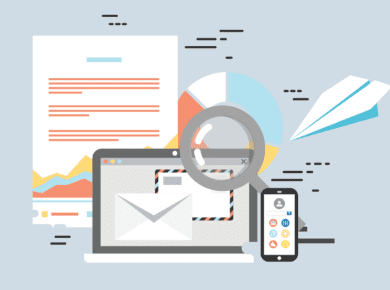Imagine a world where teaching and learning are not just a one-size-fits-all experience, but a journey tailored to each student’s unique needs and dreams. This is not something you need to imagine, it is the reality of education today, thanks to Artificial Intelligence (AI). The importance of AI in education cannot be ignored as it has transformed the way we teach and learn.
In this blog, we’ll explore how AI in education sector plays an important role and what is the importance of artificial intelligence in education.
What is AI?
AI in education refers to the use of artificial intelligence technologies to enhance the teaching and learning experience. This can involve different software and systems that adapt to individual student’s learning paces and styles, provide personalized learning experiences, assist teachers with grading and administrative tasks, and offer insights into students’ progress and challenges.
The importance of AI in education comes with AI tools such as educational apps, online tutoring systems, interactive games, and platforms that analyze data to improve educational outcomes. Essentially, the role of artificial intelligence in education is to make education more efficient, generate engaging content, and tailored to each student’s needs.
It also can analyze vast amounts of data and learn from interactions, allowing it to offer unique insights into each student’s learning process, meeting the educational experience to their individual needs and preferences.
Importance of AI in Education for Teachers
The role of Artificial Intelligence in education is continuously becoming a game-changer for teachers along with transforming the traditional form of teaching methods. Here’s a look at how the importance of AI in education is reshaping the role of teachers in education:
1. Personalized Learning
It can provide a personalized learning experience to every student along with analyzing the student’s learning pattern, strengths, and weaknesses.
Similarly, one of the uses of artificial intelligence in education can help teachers tailor the learning experience to meet the individual needs of each student.
2. Engagement
Moreover, AI-powered tools make the learning process more interactive for students, which can help keep students engaged. Different activities like games or simulations can be included to make the learning process more fun for your students.
3. Customized Feedback
Teachers can make use of AI in education to provide immediate and personalized feedback to students, helping them understand their mistakes and improve quickly.
AI can help teachers save their precious time by helping them with tasks that require manual efforts such as providing feedback, preparing lesson plans, classroom interactions, etc.
4. Automated Grading System
Teachers can make their task of grading their students an easy and smooth process. AI can grade assignments and exams quickly and consistently, allowing teachers more time to concentrate on lesson planning and individual student needs. This is one of the best uses of artificial intelligence in education.
5. Task Automation
Routine administrative tasks can be automated with AI, allowing teachers to dedicate more time to teaching and less to paperwork.
AI in education can streamline administrative tasks such as attendance, scheduling, and communication with parents, reducing the administrative burden on teachers.
Also read – What are Digital Classrooms?
6. Learning Gap Analysis
With the help of AI tools, teachers can easily identify learning gaps among students. Teachers can get access to detailed reports and insights into each student’s learning journey. By using these insights, educators can tailor their teaching strategies to meet the individual needs of their students, ensuring that no one is left behind.
AI’s ability to process vast amounts of data quickly and accurately means that these gap analyses are more comprehensive and detailed than what would be feasible manually.
7. AI in Examinations
The role of AI in examinations is multifaceted, offering benefits such as automated grading, plagiarism detection, and the generation of personalized feedback. Teachers can reduce their administrative workload, allowing them to dedicate more time to student engagement and instructional improvement.
8. Smart Content
The involvement of AI is transforming education by making teaching materials more interactive and personalized. Digital textbooks and online modules can adjust to each student’s learning pace, enhancing the importance of AI in education.
Moreover, these materials are always up-to-date, keeping content relevant and aligned with new standards. This capability is crucial for the future of AI in education, as it helps teachers deliver a dynamic learning experience that meets the expectations of today’s digital-native students.
9. Universal Access
Teachers can utilize the importance of AI in education to reach a wider audience and create an inclusive learning environment where every student has the opportunity to succeed. Furthermore, it can facilitate remote learning, which has become increasingly important, ensuring that education continues uninterrupted under any circumstances.
10. Enhanced Teaching
Teachers can analyze the effectiveness of teaching methods and offer suggestions for improvement, helping them to continually develop their skills.
By integrating these AI capabilities, teachers can enhance their teaching methods, provide better support to students, and manage their time more effectively.
Importance of AI in Education for Students
The importance of AI in education students is multifaceted and rapidly evolving. Here are some key points highlighting its impact:
- Makes learning more accessible to students with special needs like voice-to-text transcribers, personalized learning interfaces, and software for adaptive learning.
- Additionally, helps in identifying the learning patterns and preferences of individual students.
- AI-powered language learning apps and tools can offer personalized language learning experiences for students.
- Furthermore, AI systems can help in the early detection of learning disabilities or difficulties by analyzing student interaction and performance data, enabling timely intervention.
The main role of artificial intelligence in education offers a dynamic and evolving landscape that enhances the learning experience, making it more personalized, efficient, and accessible for students.
What Does the Future of AI in Education Look Like?
The future of AI in education looks like a fun and exciting adventure into a world of smart teaching and learning. AI tools will offer a helping hand, creating personalised learning experiences for every student.
Consequently, these tools could adapt to each student’s learning style, making sure that everyone understands the lesson, no matter if they are fast learners or slow learners.
Along with students, teachers will also benefit from AI advancements. They will get tools to ease their time-consuming tasks like grading papers, preparing lesson plans, or helping students directly.
Indeed, the future of AI in education is all about making teaching and learning more accessible, efficient, and enjoyable for everyone involved.
Conclusion
The importance of AI in education cannot be understated. AI will be a transformative force that will reshape how we teach and learn. It will make education more accessible, efficient, and engaging for teachers as well as students. The journey of artificial intelligence in education is just beginning, and its potential to revolutionize the field is limitless.
Importance of AI in Education FAQs
A1. AI offers automation of repetitive tasks, personalized experiences, enhanced data analysis, improved efficiency, and innovative solutions in various sectors including healthcare, education, as well as businesses
A2. In education, AI is used for personalized learning, automated grading, intelligent tutoring systems, data-driven insights for curriculum development, etc.
A3. AI, like any technology, is neither inherently good nor bad; its impact depends on how it’s used.
A4. AI has the potential to greatly enhance education by personalizing learning and improving accessibility. However, it should complement, not replace, traditional teaching methods.
A5. AI is revolutionizing education by personalizing learning experiences as well as providing adaptive feedback, enhancing student engagement and outcomes.




